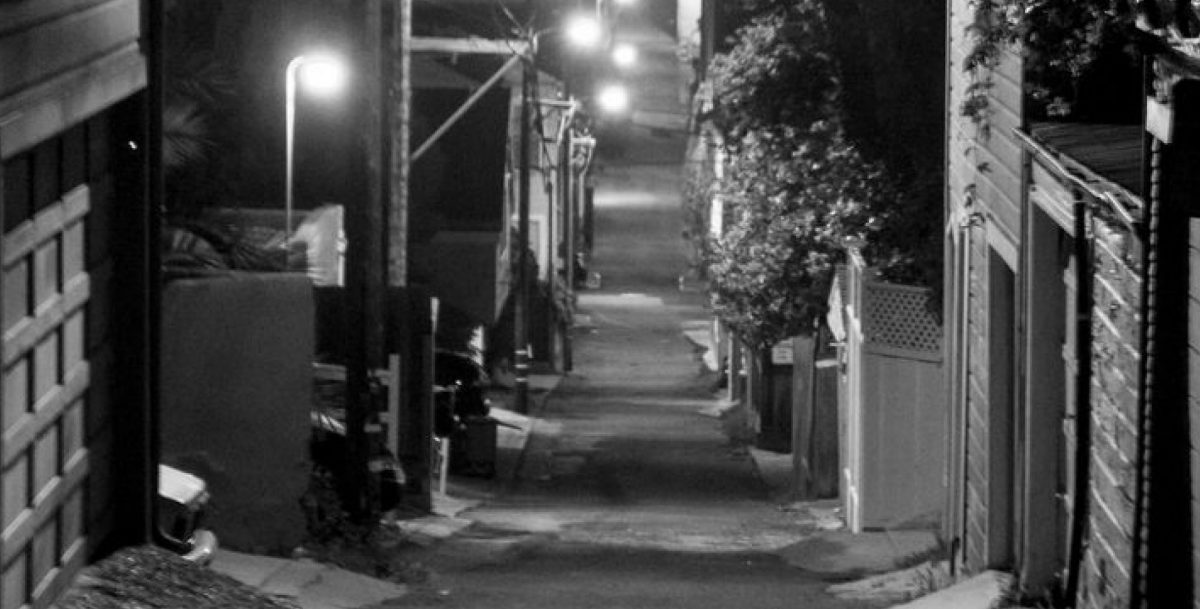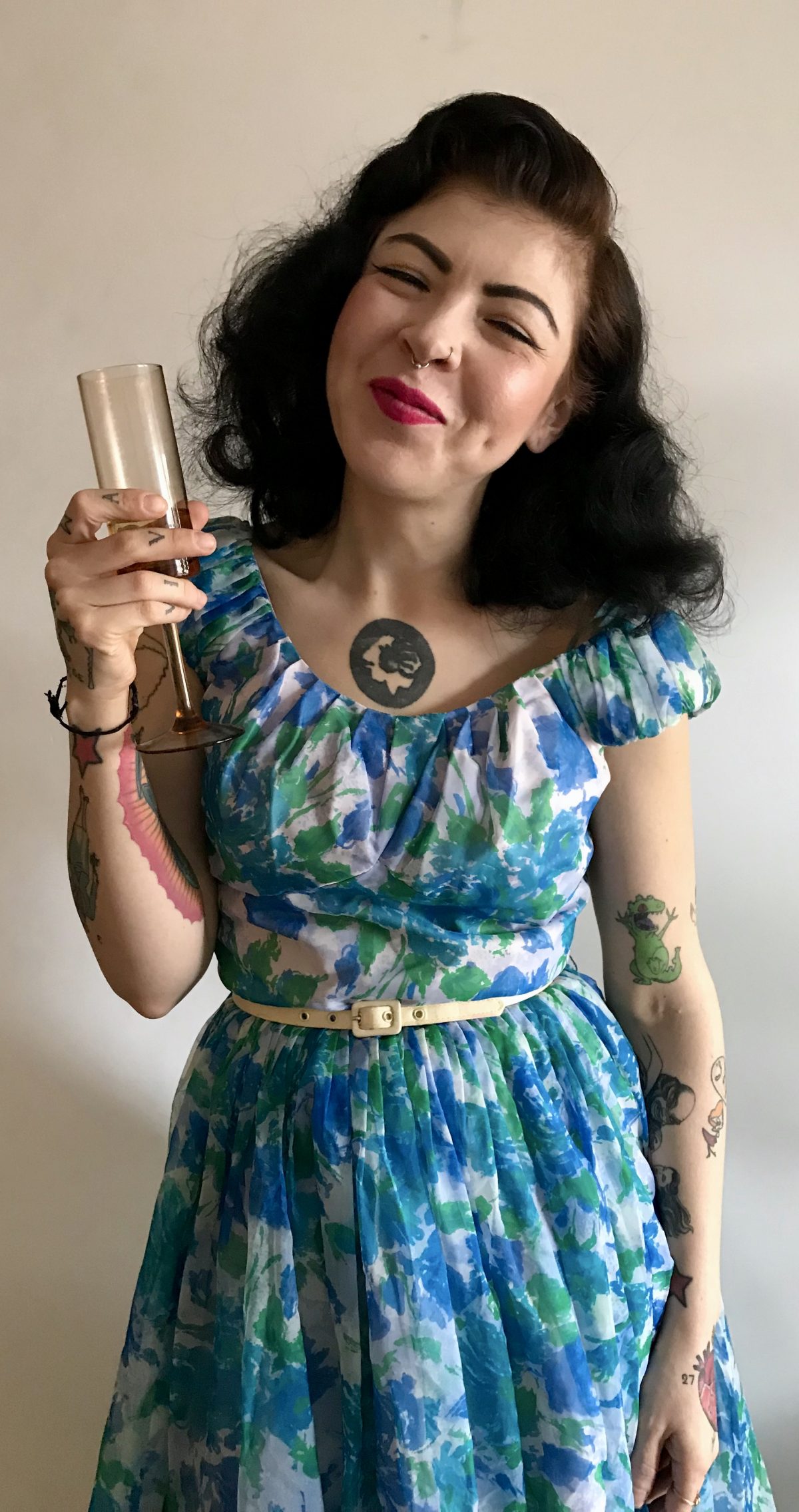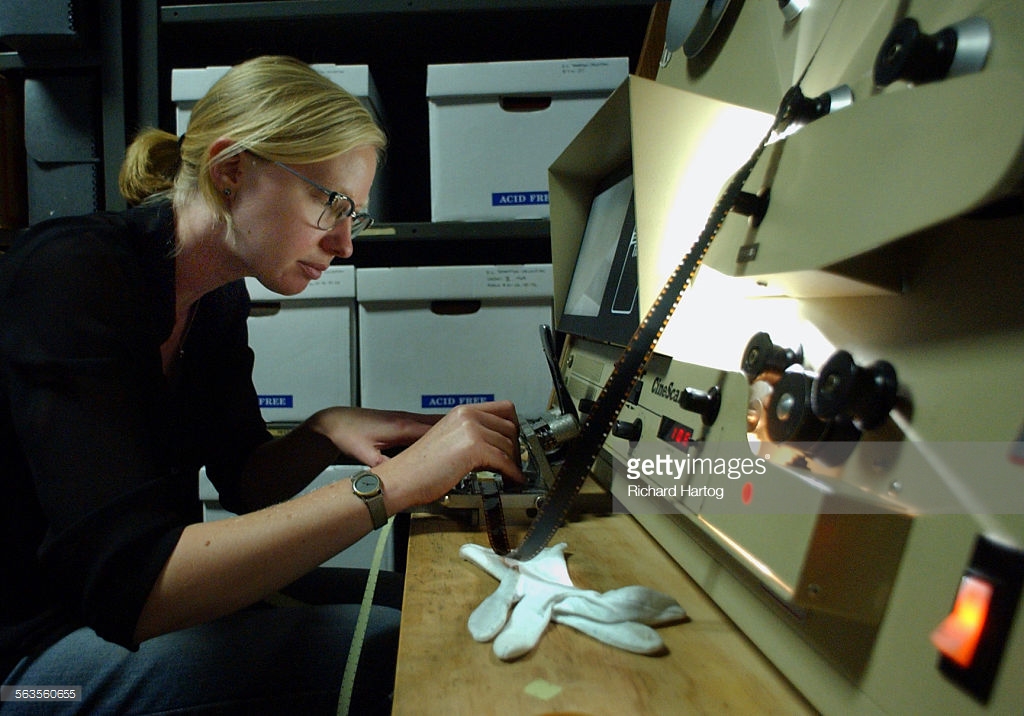The best thing to come out of the last election was that I met Erica Lopez.
As you’ll learn about in the first few minutes of this week’s episode, we met at the AMIA conference in Pittsburgh, PA. It was November of 2016.
The sad thing was that the actual conference was amazing. Some of the best panels I’ve ever experienced at AMIA. But we were all so goddamn numb because of the election results that we were somewhere between zombie, “Is this real life?” and wanting to go to sleep forever or the next 4 years (whichever came first).
But I met Erica Lopez and her badass partner-in-archivey-action Caroline Oliveira and I was so thrilled. These women were my kinda ladies!!!!! These women were still students and considerably younger than me but I was so excited to find women who were just as passionate about the field as I was in a positive and pro-active way!
Obviously I kept in touch with both women.
Erica got in touch with me earlier this year and told me what her thesis was going to be about and I was floored. Her title, as presented at the end of March, is Mi Voz: Latin@ Self-Representation in Home Movies, and this was the description that was posted in the schedule for NYU MIAP thesis presentations. “The portrayal of Latin@s in the media has been constructed by stereotypes that attempt to suppress their voice. This thesis will focus on home movies of Latin@s, primarily on Mexican-American/ Xican@ communities. These movies challenge, threaten and question stereotypes of Latin@s because these are images of self-representation. This thesis will look at different collections of home movies, specifically looking at the content, film format, the year they were shot and the year they were acquired in a cultural institution. The thesis will also consider how this community is represented in metadata since Mexican-American, Latin@, Hispan@, and Xican@ are labels that connote problematic issues. The thesis will end with a case study on The Fuentes Collection of home movies, which has been added to the National Film Registry’s list. After giving an historical background of the Fuentes family, I will discuss how they represent life in a border-town-space.”
I genuinely love home movies but let’s get real: the ones that most people see and the stereotype of the “Home Movie” is pretty damn white.
Home Movies are not white. Looking at those in the US, they are African American. They are Japanese American. They are Mexican American. They are Italian American. They are Pilipino American. So why do we just imagine blond babies toddling by the Christmas tree while Dad drinks a beer when we consider the “home movie”?
Erica Lopez is subverting the dominant paradigm by saying: I’m looking at Mexican Home Movies, movies that people have been ignoring. Films that have been sitting there because they are of people of color, cultures who have systematically disparaged and considered “less than” by a structure that still requires fixing. Erica Lopez is a critical scholar in this area. She did exactly what archival professionals are supposed to do: she saw a void in our field and said, “Oh hell no. I’m gonna fix that!”
Full disclosure: Erica is one of my best friends. So of course I’m going to say amazing things about her. But I wouldn’t go out of my way to praise her scholarship or social justice passion if it wasn’t present. That would not fit my ethical guidelines for myself and how I live my life.
I invite you to listen to this podcast that I did with a woman who continues to impress me the longer I know her. I think you’ll enjoy it.
I know we enjoyed doing it.
Erica’s Bio:
My name is Erica Gloria López. I am a graduate student at NYU Moving Image and Archiving Preservation program. I’ll be graduating this May, hopefully, so the pressure is on to join the ‘professional’ world is scary, for many reasons, and obvious ones. Growing up in a Mexican family, living in America, was an experience that with time and experiences, has influenced my life. I never thought I would be an archivist, let alone, ever imagined finishing school at my age, 35, since I did not go to college after High School. I was too busy going to punk shows and dancing to 80s music in Downtown LA. But, for some odd reason, I stumbled across this program. It’s been one of my biggest life challenges, and the most rewarding.
Check out The Fuentes Collection: http://www.texasarchive.org/library/index.php/Category:The_Fuentes_Collection


